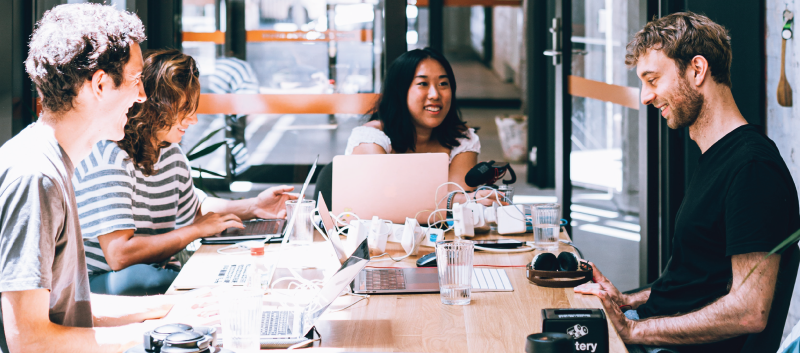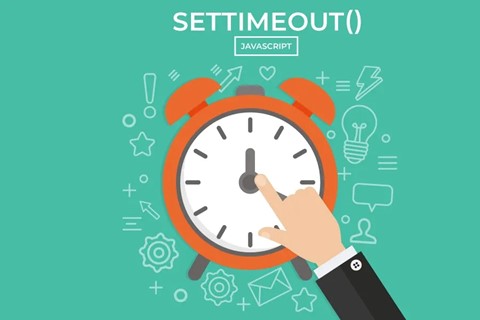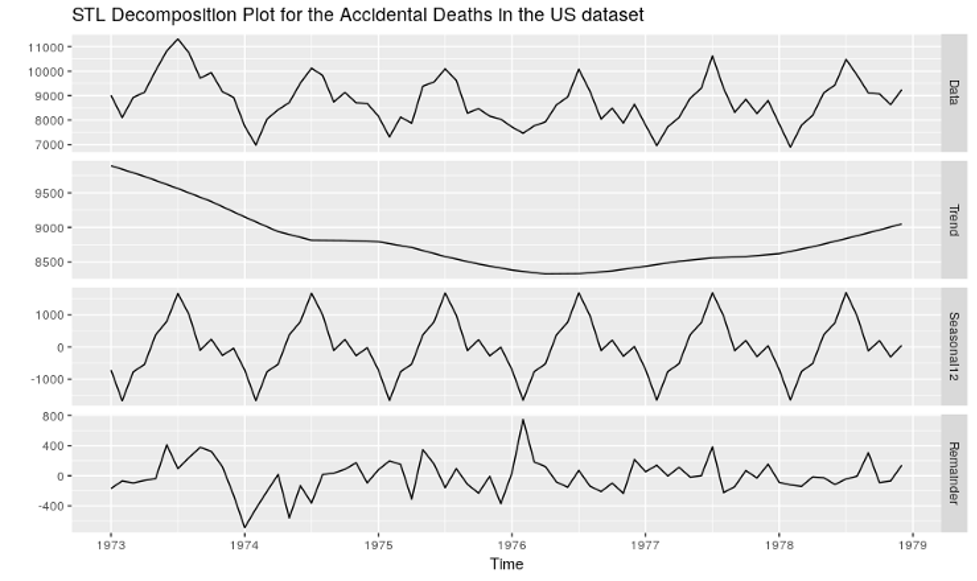
“It is understandable that as most of us are forced to stay isolated at home for weeks at a time, we are left feeling worried, sad, or anxious. However, most of us have the privilege of access to technology and its various blessings: our partners, colleagues, and friends are not as far as they seem, but rather just a phone call or video call away.
It is deeply human now to feel alert because, even beyond rational arguments, our survival instinct warns us that we must be prepared to anticipate any possible danger. In the end, that is how we have survived for centuries. Beyond that, it is reassuring to remember that we have become the dominant species on the planet due to our superior ability to communicate, to get organized, to show solidarity in the face of adversity, and, above all, to adapt quickly.
For a technology company, digital tools have always been on hand. However, this moment is a test for us as it is for everyone. We try to live with the uncertainty of tomorrow’s diagnoses with deep optimism while at the same time allowing ourselves to give in to the pessimism, in a controlled and calculated way, preparing for the worst but hoping for the best. Thus we ensure the continuity of the business, with conscious, constant, and renewed positivity. We are confident that we will all emerge stronger from this situation, and our ability to adapt creatively is at least as important as risk management.
A new consumer behaviour
Indeed, consumer behaviour normally develops over a long period. But we live in extraordinary times, as a famous Chinese proverb says. Even though the experience now is largely traumatic, it also shows us that certain things work just as well in different ways from the status quo – and sometimes maybe – better. For example, working from home, internet banking versus visiting physical branches, online grocery shopping or paying by card. Besides the younger generation (under 30) for whom this digitalised behaviour is natural, people of all ages and backgrounds will become more aware that digitalization can make things easier and more convenient. New standards will shape the expectations of consumers who interact with service or product providers. After a period in which the customer experience was gradually digitized, slowly, and the legislative framework did not encourage the acceleration of this evolutionary trend, now things have suddenly taken on a different rhythm.
Sudden changes that bring long-term benefits
It took us decades to give up the stamp, and now we wonder if it was truly helpful. This situation has forced us to suddenly give up even physical documents and their handwritten signatures, due to the nature of social and physical distancing which has become a necessity.
If we look beyond the natural fear of change, we can see that the potential benefits are great for all parties involved: for institutions as they measure new processing speeds, and for the consumers in the inherent convenience of solving their various problems right from the comfort of their own home.
Last but not least, society is also set to reap long term benefits, by promoting a nature-friendly behaviour, without redundant printed paper that requires recycling. In the digital sphere, concepts such as digital transformation have coexisted with various anachronisms such as the paper signature.
Even if at a rational level it can easily be proved at any time that digital signature is more secure, to the detriment of the handwritten one or the stamp, the emotional attachment to the old formats would always prevail. Now, however, we are at a critical juncture, a moment when change is no longer simply desirable, but mandatory. Continuing with this model, the electronic signature will be the first on the front line of digital transformation and is the focus for industries critical for the economy, such as banking.
At the same time, in areas where digitalization has not been as promoted so actively in Romania, there are significant changes that will most likely create long-term expectations from consumers: subscriptions to virtual sports sessions, online courses, virtual museums and concerts broadcast through digital platforms that have so far been reserved for the corporate or technical environment. All these things are a stimulus to learn and develop at home.
Digital continuity and security are becoming priorities
Although the impact is difficult to assess now, it is certain that the volume of information that is created during this period, and will continue after this situation, is significantly increased. It is enough to think about the number of documents that were created on paper, and now, due to necessity, have become digital, but we must also consider the increased amount of digital content produced by entertainment companies (plays, movies, opera performances, etc), significantly higher volume of webinars and online meetings, to understand that the growing trend of stored, archived, and indexed data volumes is exponential.
Because of this, the impact of a negative digital event (such as the loss of connectivity, data loss, or cyber-attacks) will be incomparably stronger and harder to fix. Fortunately, technology is advanced enough that the management of these types of risk is only a challenge of priorities within the reach of each organization.
Changes in consumer expectations, but also legislation
However, “interesting times” bring with them, in addition to the emotional impact, a whole host of transformations and opportunities that the whole world will benefit from in the long run. I would like to invite you to focus together on the positive aspects of this global disruption. Take, for example, the field of financial services, which is familiar to many of us: in an increasingly digitalized world, financial companies such as banks or insurance companies already have access to all the technology they need to easily adapt to the new behaviour of customers, shaped both by the crisis generated by the pandemic and by the adoption of digitalization in other areas related to a modern lifestyle.
The implementation of this technological-cultural transformation is rather an act of will that can sometimes be related to the survival of the organization, going beyond the discomfort of adapting to the new or conservative interpretation of the legislative framework. In the end, everything becomes a matter of keeping the promise of a pleasant, safe, and efficient user experience for customers, which is the foundation of any solid business. Given the role of banks in the economy, they are subject to specific requirements regarding the robustness of their services in special situations, such as the current pandemic in which everyone’s freedom of movement is severely restricted. Given this risk, regulators may recommend – knowing the significance of a recommendation from the Central Bank – to provide 100% digital services to customers.
A call-to-action instead of a conclusion
What I discovered in this pandemic is that projects do not have to take so long to be launched, nor do they need to be so bureaucratic. To produce value, you need (good) will and an open attitude towards solutions and innovation. It’s important now to try new things, to iterate and adapt quickly. This is true for both contexts, in which entire companies started, practically overnight, to work from home, but also in the accelerated delivery of digital desideratum that have been on the agenda for years, but which have always received minor priorities or budgets.
The attitude modulates our reality, and, implicitly, shapes our future. I invite you to look at the current situation as a crisis in which we must be careful, but also to look to the many opportunities that arise to (reinvent) what it means, first of all, to stay in touch with each other, and generate new energy to change the world for the better with the tools provided by technology. We will discover that we can save resources and time so that we can focus on what we know best: being human.”



